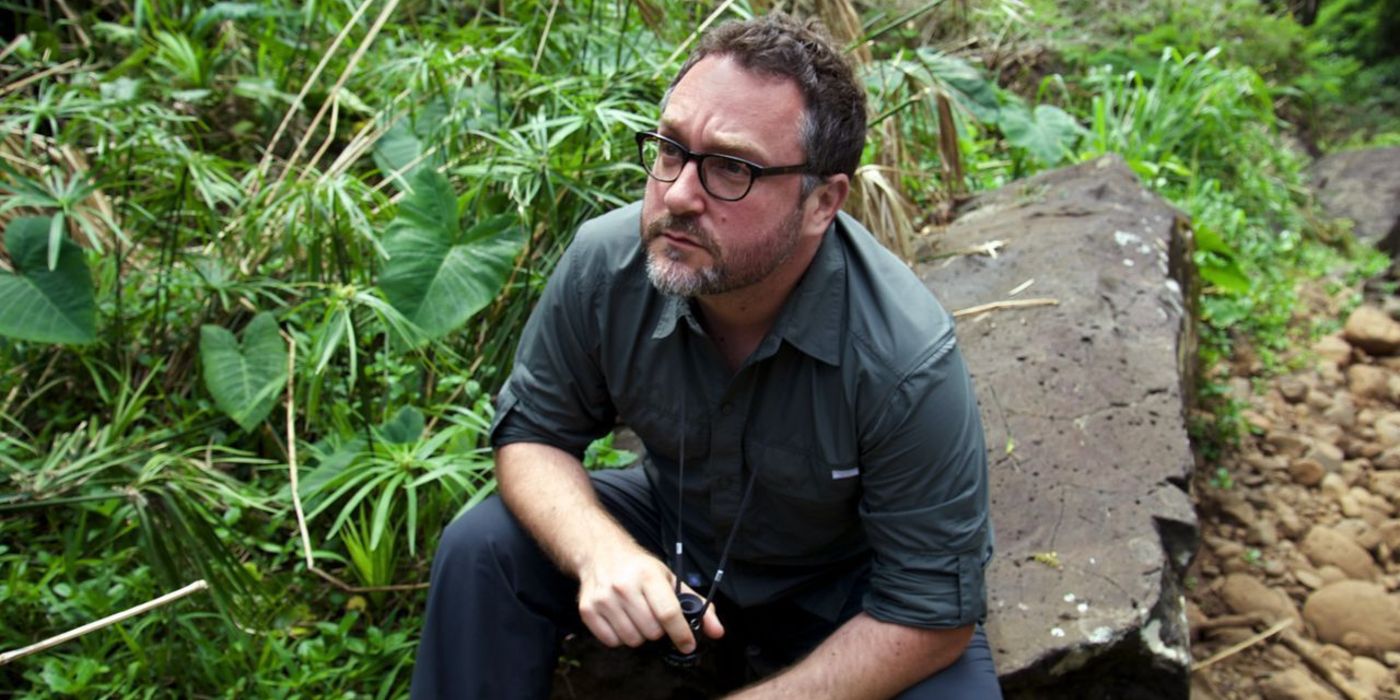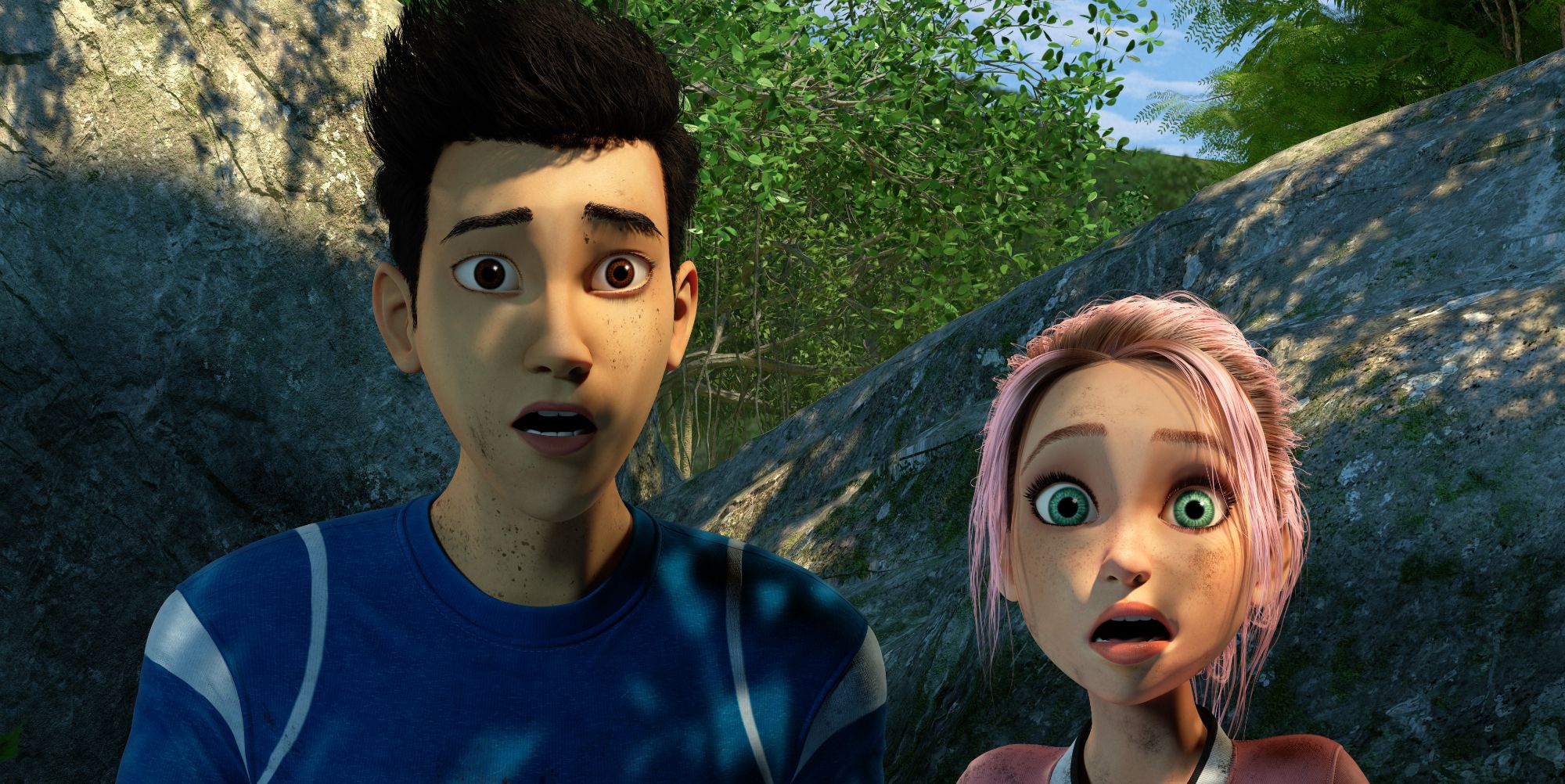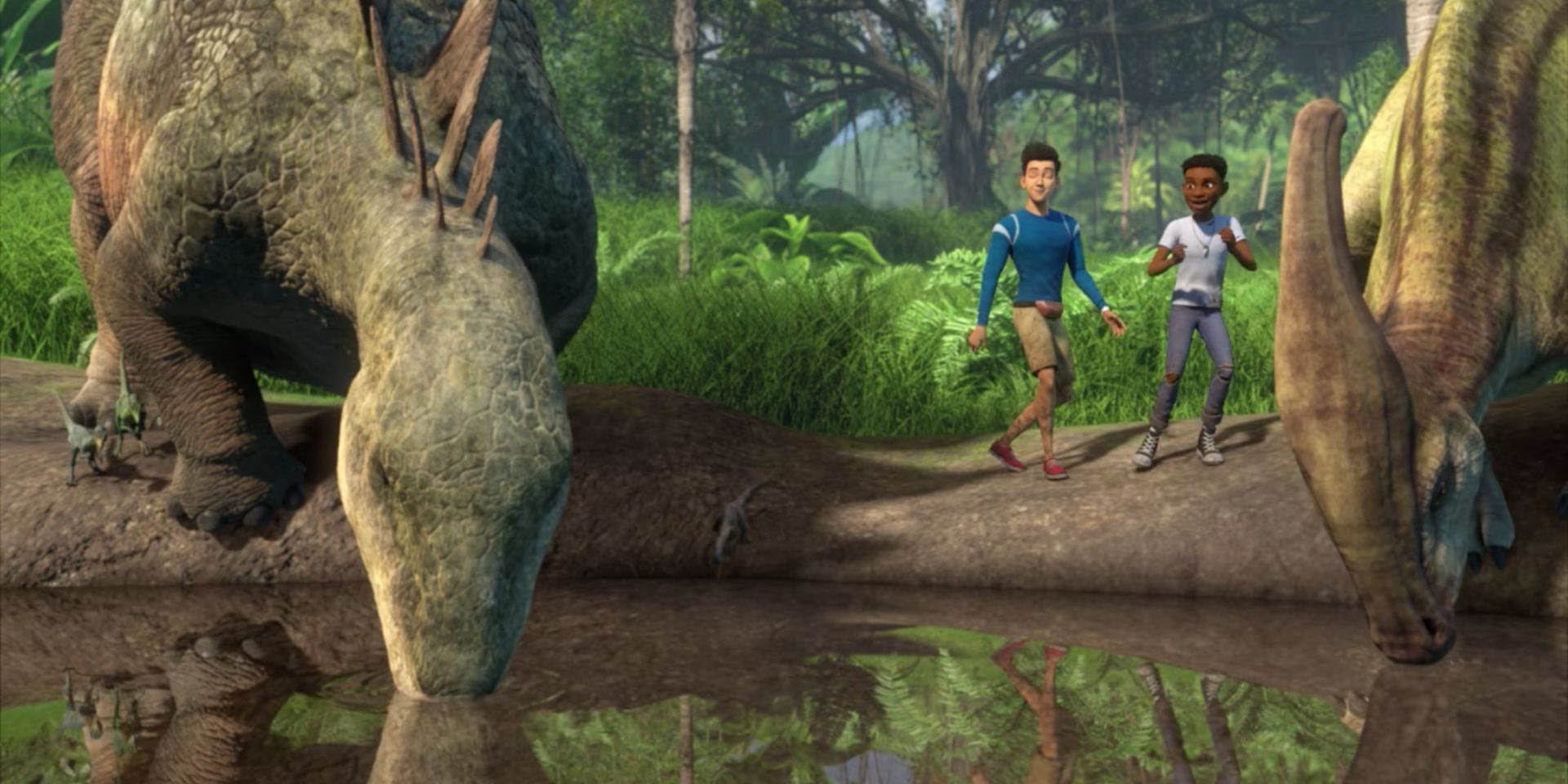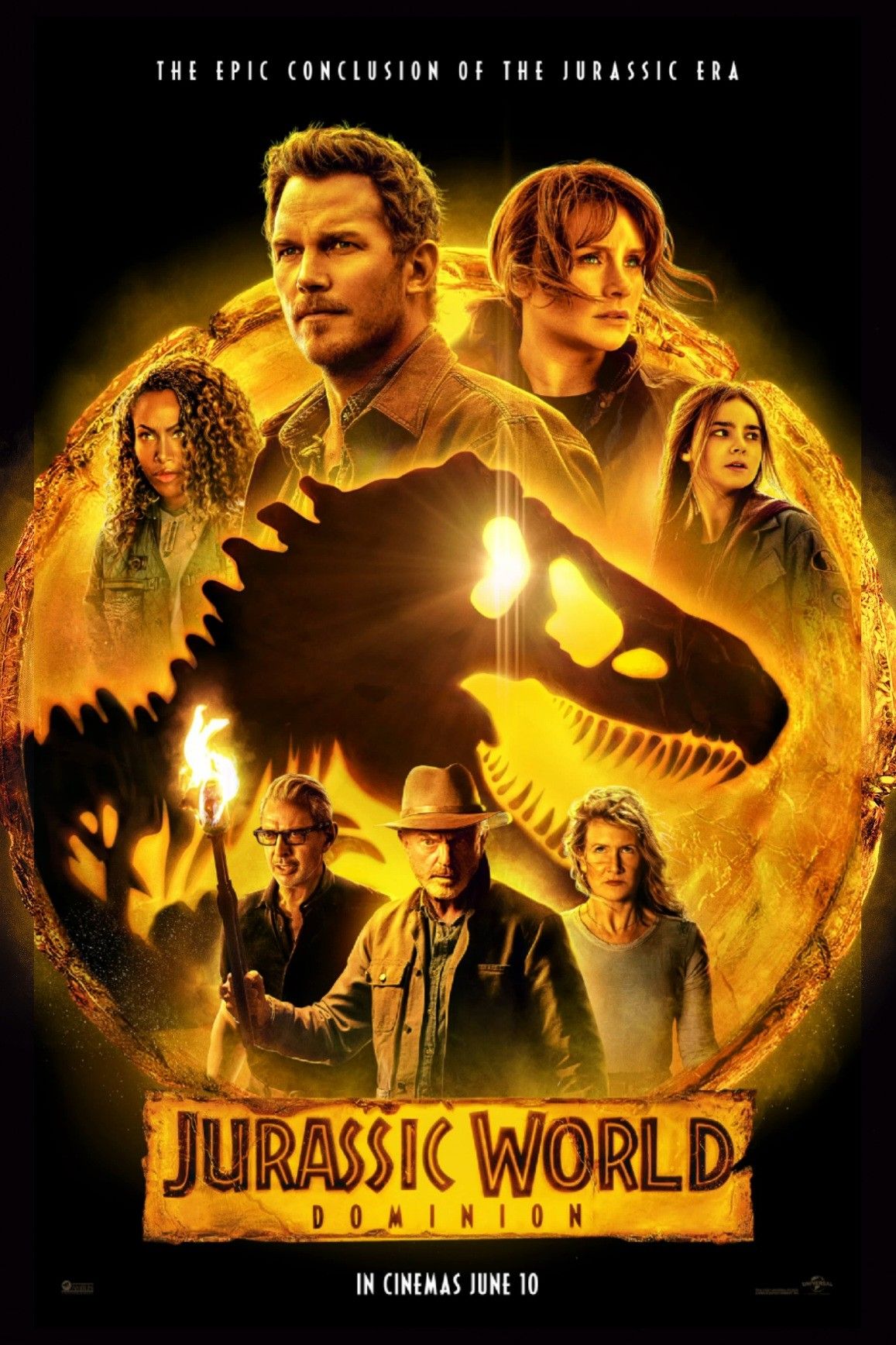Jurassic World: Camp Cretaceous returned to Netflix with season 2, which continued the story of the show's six teenage heroes, who are now stranded on Isla Nublar, which has been overrun by dinosaurs. Camp Cretaceous season 2 is another exciting mix of dino action and thrills aimed towards kids but also exciting enough for adults, but the animated series also conveys the magic of the Jurassic Park movies that began with Steven Spielberg's original.
Screen Rant had the pleasure of speaking to the Jurassic World franchise's writer-director, Colin Trevorrow, who is also a producer of Camp Cretaceous. Taking time out from editing 2022's Jurassic World: Dominion, Trevorrow spoke about helping craft Camp Cretaceous season 2's story and themes, what his favorite dinosaur is, and he shared his thoughts on just what makes the Jurassic franchise so enduring.
The thing I liked most about season two of Jurassic World: Camp Cretaceous was the watering hole. I thought it really recaptured the Spielberg-ian magic of the original Jurassic Park. How hands-on are both you and Steven Spielberg in producing Camp Cretaceous?
Colin Trevorrow: I'll let Steven answer that one for himself - he'll actually just show up at DreamWorks Animation and talk to the writers on his own accord, and I know how much they love it. That much I know, but for most of those occasions, I wasn't there. They got to have their own experience with him, which is pretty cool.
I was got to be a part of the writer's room. I got to go sit in there for a pretty significant amount of time, and to be able to lay out a set of values that we all shared about the franchise and what was important to us about it, and what elements we felt were a third rail and we don't want to go here. That kind of basic stuff.
It was just a completely different set of people, and all of them have their own perspective on Jurassic Park, why they love it, and what's important to them about it. I was able to listen to them and build something from the ground up with people who are for the most part younger than me, who had a very different experience with Jurassic World than anyone my age ever could be. We're Jurassic Park people, anyone in their 40s.
Maybe it's a bit of a tangent, but I too have to put myself into the mindset of a kid who was 7 or 8 and saw Jurassic World first. That was their jam. As we go through this and make a show that might be the first time certain kids are ever exposed to anything Jurassic, we've got to make sure that it has all the things the movie has. That it's emotional, and it has real characters with fears that resonate with us, and it's thrilling and funny. And it's scary; even though it's a kid show, it's gotta be scary.
Part of the fun of season 1 was how it synced up to Jurassic World, and you got to see the story happen before, during, and after your film. What was important to you about exploring the campers' next story in season 2?
Colin Trevorrow: I wouldn't call having to be a part of a story that was running concurrently with Jurassic World to be a crutch - but if it was a crutch, it removed that crutch. The training wheels were off. I'm looking for the right metaphor and failing
But it allowed this show to finally come into its own and be its own thing, and not be in any way related to the events that we saw in the first film. And that was very exciting for me, just because the writers did such an incredible job building characters that we really wanted to follow on an adventure. When you start off this season, suddenly realize these kids are in a really high stakes scenario, and they've lost somebody. This is sad and scary.
I love those early episodes because it feels a little destitute. It feels really dark at moments. And I think for a lot of kids now, that's gonna resonate. It's a scary time to be a kid.
Season 2 showed a Jurassic story the movies haven't really dealt with: what the island was like right after the dinosaurs took it over. What excited you about doing that story? What do we have to see that you thought was really important?
Colin Trevorrow: It was a story that you were able to tell from the animals' perspective, which is something that I really like. It's from the kids' perspective as well, but I feel like we left Jurassic World a Zoo, and we came back to a completely wild environment that had been brought back into the natural world. To be able to show how these creatures, who were used to being fed and used to being cared for and used to having bars and electric fences all around them, are adapting to becoming wild animals again was great.
I consider them all characters. As you can see in the show, they are recurring characters and you really get to know who are our dinosaurs. Getting to follow that alongside the kids, who are really going through the same thing - they didn't have anyone to care for them anymore, their parents are gone, and they don't have any food - got to be this pretty interesting parallel of humans and dinosaurs having a shared experience.
Can you say how far ahead Camp Cretaceous is planned out? Because we know from Fallen Kingdom that the volcano's gonna explode in a couple of years. How close will the show push up against that?
Colin Trevorrow: We do have a story that I think you can see that we're building, and a mystery, and all kinds of larger elements that will take these kids deeper into a journey that pulls further and further away from Jurassic World. But it's also always running parallel to the story that we're telling in the movies.
That was part of the fun for me: to sit down with everybody and think about the long game. I told them everything that happened, so we were really able to work ways into this story that will feel like a culmination of this show as well. Every piece of the story we've told has value, and I think all of these kids will reveal themselves as the show goes on to really be part of the legacy of Jurassic Park. I think you can see it even more in this season than you could in the last, and I hope that'll continue.
The show has such a great voice cast; not just the young actors playing the kids, but also some cool adults popping up like Bradley Whitford and Stephanie Beatriz in season 2. Are there plans for legacy characters to pop up in some way, shape, or form?
Colin Trevorrow: I can't tell you now. I mean, we all know what they're doing during this time. I will probably leave that for you to discover.
The only thing I'll promise is we're not going to kill the kids in the volcano. I just don't want you thinking that's what my whole master plan is. That would be really upsetting.
As the master of Jurassic World right now, what is your favorite dinosaur?
Colin Trevorrow: I would say associate master. Steven Spielberg will always be the master. I'm assistant to the general manager.
Ankylosaurus is my favorite. It was cool that they made Bumpy an Ankylosaurus. That stemmed from, I think, they asked me that question and that was my answer. The evolution of Bumpy in this season is something that I love. My favorite episode is the one in the middle, with them learning how to survive and Bumpy growing up. Being able to go through that much of an emotional arc with a kid, it really felt like we were moving into territory that I hadn't seen in Jurassic Park before. To be able to do that on the show is what excites me the most. I want us to see new things.
What about the Jurassic story overall do you find timeless? It translates so well across every medium. What is it that resonates so much about this universe?
Colin Trevorrow: I think there's two things. One is that when you are born, you're usually alive for about two to three years before you look at a dinosaur and say, "I want to know more about that. I want to know right now, and I want to know as much as you can tell me." It's a really universal experience that crosses cultures, and it's pretty amazing. I don't think we can really explain it; it might be honestly something in our DNA that knows somehow we are connected to these creatures on a deeper level.
That's why we love dinosaurs. I think the reason why Jurassic Park resonated is that, in a lot of ways, that the core concept of Jurassic Park is the hero's journey. Dinosaurs lived, they walked the earth, they died and they were resurrected. We're watching the hero's journey play out over 65 million years with these creatures that we love. And I think that's a pretty cool story to tell.
How is post-production on Jurassic World: Dominion going?
Colin Trevorrow: You know, I'm talking to you from the editing room, which is in a barn next to my house. This is the life we're all living. We are all virtual, so I see my editor all day every day through a system that we're able to edit remotely. I live out in the country, so I can take walks outside, breathe deep and think about the experience we had making it - which was a pretty emotionally rich one, to say the least.
I'm cutting performances that are just really beautiful and really rich, and we've never been able to delve as deep into characters in a Jurassic movie as we have managed to do in this movie. I credit all the actors for that, and the fact that we were together in a shared space for four months. We all lived together in a hotel for four months of our lives. The process that we went through, and how much we were able to dig into each of these characters, is pretty unique even in movie history. People just don't spend four months living together, on weekends as well. We literally couldn't leave it.
I think it's resulted in a very special movie, and I can't wait to share it.




